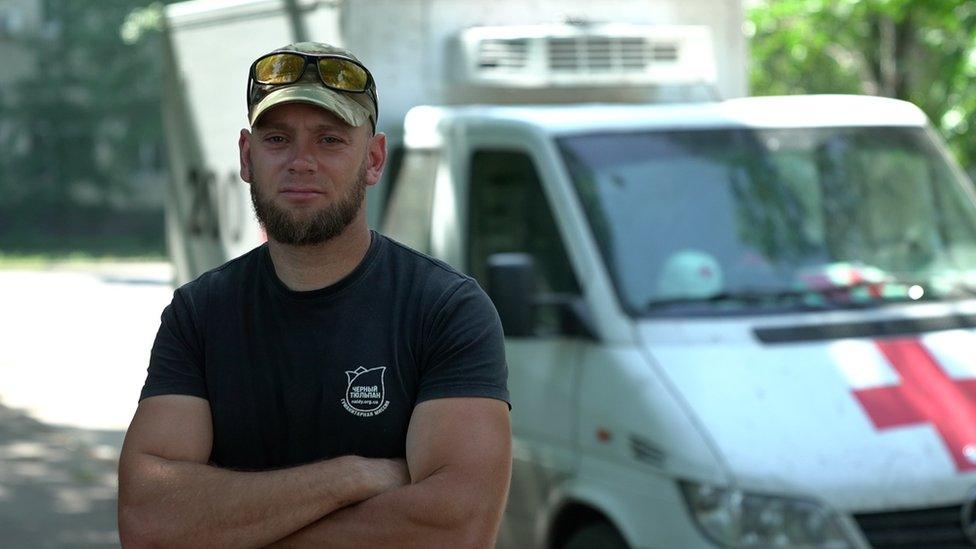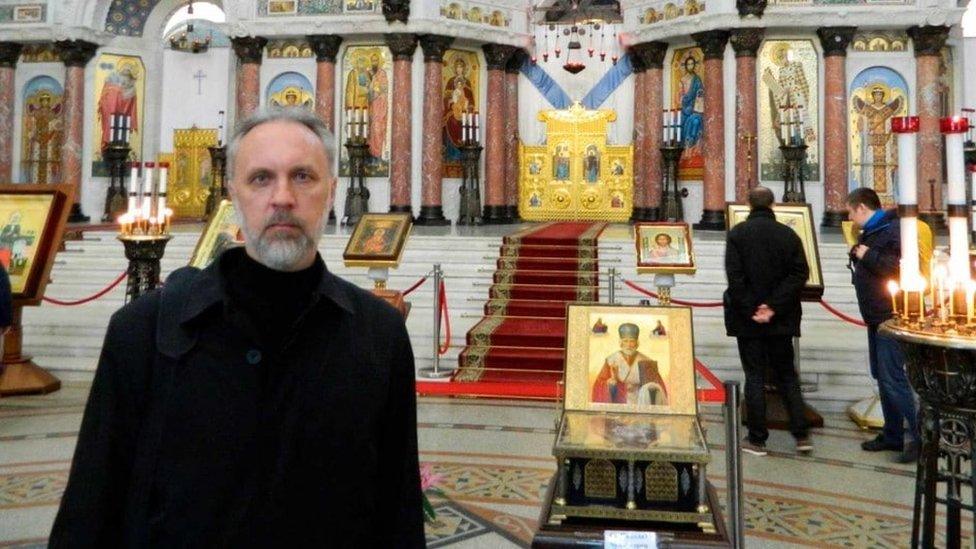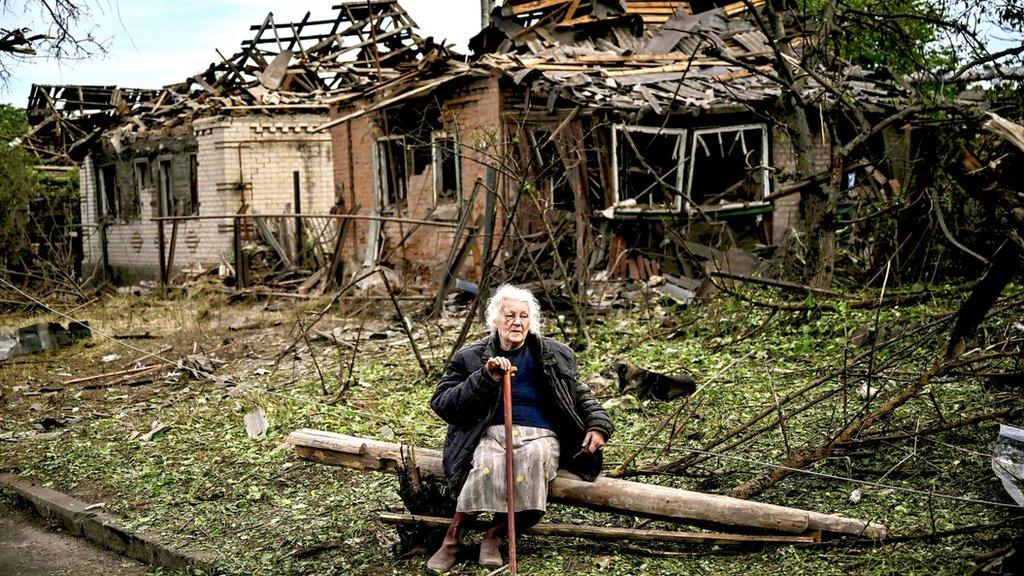Collecting the war dead and the anti-war priest - round-up
- Published

Mourners watch Liza's open casket at her funeral on Sunday
Dozens of distraught relatives and local residents attended the funeral on Sunday of four-year-old Liza, who was one of 24 people killed when Russian missiles hit the Ukrainian city of Vinnytsia last week.
Ukraine says at least 40 people have been killed by Russian shelling of urban areas since Thursday, with long-range attacks from the air and sea becoming more frequent.
Russia claims to be hitting military targets.
Its defence ministry said on Sunday it had shot down a Ukrainian helicopter and a fighter jet in separate attacks in the east of the country. It also claimed to have hit a depot storing Ukrainian missiles in Odesa.
According to a Ukrainian intelligence official, Russia is preparing for the next stage of its offensive.
Sunday is also the eighth anniversary of the shooting down of Malaysia Airlines flight MH17 above eastern Ukraine, which international investigators say was hit by a Russian surface-to-air missile likely fired by Russian-backed separatists.
Ukrainian President Voldymyr Zelensky sent his condolences to the relatives and friends of "those innocently killed by Russia", adding that Russia "continues to sow grief and death on Ukrainian soil".
The anniversary serves as a reminder that Ukraine has been at war with Russian proxies for more than eight years.

Collecting bodies in the Donbas

Aleksey Yukov recovers dead bodies of Ukrainian and Russian soldiers killed in combat in the Donbas
Aleksey Yukov has lost count of the bodies he's recovered in the eastern Donbas region - but says it is probably more than 300.
His job is to drive towards danger in a refrigerated van, collecting the remains of Ukrainians and Russians who have died in the conflict.
"We work with no days off. Constantly. We drive, we investigate, we transport, we search, all the time," he told the BBC's defence correspondent Jonathan Beale in Donbas.
It can be grim work, digging up Russian bodies from shallow trenches or gathering their remains from burned out vehicles.
Ukrainian soldiers say they believe they can win the war, but there is no doubt the fighting is taking its toll.
Aleksey hasn't seen his one-year-old daughter for months.
"This war has ruined the life you had and the one you've been building,"he says.

The priest detained in Russia and Ukraine

Father Ioann Kurmoyarov was previously questioned by Ukrainian police for displaying a pro-Russian symbol
Father Ioann Kurmoyarov is believed to be the first priest imprisoned under a new Russian law which bans people from spreading information about the war deemed false by the Kremlin.
His alleged crime was to upload a video to YouTube, in which he said that aggressors would not go to heaven, and that the aggressor in this war was Russia.
In a statement dictated to his lawyer from prison, he said he was a pacifist whose views are based on the canons of the Russian Orthodox Church.
But Father Ioann has also been in trouble with Ukrainian authorities.
In 2017, then living in Ukraine, he posted pictures of the St George's ribbon, the orange and black symbol of support for Russia's military, and these days also for Vladimir Putin's Russia.
The images were published shortly after Ukraine expanded laws to ban Soviet symbols.
"He was not radically pro-Russia, he was standing up for freedom of speech and simply believed the authorities were doing the wrong thing by banning displays of the ribbon," Father Ioann's brother, Alexander, told the BBC's religion editor, Aleem Maqbool.
The case was eventually dropped, but he is already paying a much higher price for his clash with Russian authorities.

War in Ukraine: More coverage
ANALYSIS: Is the tank doomed?
READ MORE: Full coverage of the crisis, external

Related topics
- Published15 July 2022

- Published1 July 2022
